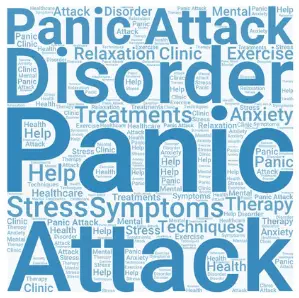Sometimes pregnancy feels like a rollercoaster. Sometimes you feel great, and other times you feel overwhelmed and anxious. Why does this happen, and what can you do to feel better?
It’s not uncommon to feel anxious during your pregnancy. According to the American College of Obstetricians and Gynecologists, around 10% of pregnant women will experience anxiety. And for some women, this anxiety manifests as panic attacks. Many women don’t realize they’re having a baby until they experience their first panic attack. They may not know why they have them and may not know how to prevent them. There are several ways to cope with panic attacks.
There are a few reasons you may be more prone to panic attacks while pregnant:
1) The hormonal changes during pregnancy cause mood swings. You will be more likely to feel anxious or overwhelmed.
2) The physical and emotional stress of pregnancy contributes to feelings of anxiety.
3) If you have a history of anxiety or panic disorder, you are more likely to experience panic attacks while pregnant.
An underlying health problem can cause anxiety. The fear of giving birth, stressful situations at home or work, and pregnancy may trigger anxiety. Whatever the cause of your anxiety, it’s crucial to get help soon if you’re pregnant.

If you experience panic attacks during pregnancy, you can do a few things to reduce your symptoms. First, try to relax and take deep breaths. Deep breathing promotes slowing down your heart rate and calming your nerves. Additionally, you might try to distract yourself by focusing on something else – for example listening to music or reading a book.
Learning as much as possible about pregnancy will help you cope with your feelings and anxieties. If you have anxiety, you can join a support group for women with similar experiences. Many online groups will offer tips to cope with anxiety. Regular meditation and acupuncture may also help. Try journaling or other relaxation techniques to release the tension. You might find they help you cope better with your pregnancy.
Regular exercise may help reduce the symptoms of panic attacks. Aerobic exercise, even a five-minute walk, may help you feel better and release stress hormones. Swimming is a good exercise for pregnant women, as it’s low-impact and helps you feel weightless.
Some other tips that may reduce your anxiety during pregnancy include:
• eating a healthy diet
• getting enough sleep
• avoiding caffeine
• practicing yoga or other forms of relaxation
• massaging your temples or neck when you feel tense
If you’re still anxious, talk to your doctor about alternatives, such as medication. You may have to consider medication to manage your symptoms. Anxiety during pregnancy is common and individual. So if it affects your daily life, your doctor may prescribe a drug that can reduce your symptoms. Knowing the risks and benefits of anxiety medications is essential. Some medicines cause harm to your unborn baby. Talk with your doctor before taking any medication. Sometimes, you may have to consider a provider change to address your concerns. Regardless of your situation, never feel embarrassed about sharing your concerns with your doctor.
Therapy is also an excellent option for dealing with anxiety during pregnancy. If you’re struggling to cope with your anxiety, talking to a therapist can help. A therapist can help you understand and manage your anxiety. They will also support you throughout your pregnancy. Your doctor can direct you to a therapist specializing in treating pregnant women.
It’s normal to feel anxious during pregnancy. But seeking help is vital if you’re struggling with panic attacks. Talk to your doctor about ways to manage your anxiety. This will ensure you’re taking care of yourself during this special time.

